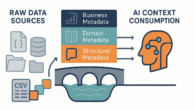Master Your Data-Driven Culture: 5 Powerful Steps to Team Success
Only collecting data / having big data stores does not guarantee success; it is the strategic utilization of data that truly unlocks the pathway to success.
In an era where data is hailed as the new oil, fostering a data-driven culture has become a necessity for businesses aiming to thrive in a competitive environment. A data-driven culture refers to an organizational ethos that leverages data in all aspects of decision-making, ensuring choices are based on evidence rather than intuition. This article delves into the key strategies for building such a culture, highlighting the benefits and providing a roadmap for implementation.

Understanding the Value of Data-Driven Decision Making
Benefits of a data-driven culture in business are manifold. Organizations that harness data effectively enjoy improved efficiency, greater customer insights, and enhanced decision-making capabilities. For instance, Netflix’s recommendation engine, driven by customer data, significantly improves user experience while boosting viewer engagement.
Leadership and Vision
The role of leadership in instilling a data-driven culture cannot be overstated. Leaders must champion the use of data, setting a clear vision and goals for its application. This leadership commitment must trickle down through all levels of the organization, ensuring alignment and buy-in.
Investing in the Right Tools and Technology
Choosing the right data management and analysis tools is critical. Tools should not only align with the organization’s current needs but also be scalable for future growth. Factors like data security, user-friendliness, and integration capabilities should be considered.
Developing Data Literacy Across the Organization
Data literacy should be a core competency for all employees, not just IT staff. Organizations must invest in training programs to develop these skills. This democratization of data empowers employees at all levels to make informed decisions.
Establishing Effective Data Governance
Data governance is essential for maintaining the quality, privacy, and security of data. Establishing clear policies and practices ensures that data is handled responsibly and ethically, fostering trust and reliability in the data used for decision-making.
Promoting a Culture of Experimentation and Continuous Learning
A data-driven culture thrives on experimentation and learning. Encouraging teams to test hypotheses and learn from data outcomes fosters innovation. It is crucial to create an environment where making mistakes is seen as a part of the learning process.
Integrating Data into Everyday Business Processes
Data should be an integral part of daily decision-making processes. This integration often requires a shift in existing workflows and systems. Overcoming such challenges involves continuous training and the adoption of data-friendly practices at all operational levels.
Measuring the Success of a Data-Driven Culture
Success in a data-driven culture can be measured through specific KPIs such as increased revenue, improved customer satisfaction, or enhanced operational efficiency. Regular assessment and adaptation of strategies are vital to ensure continuous improvement.
Conclusion
Building a data-driven culture is not a one-time initiative but a continuous journey. It requires commitment, investment in technology and people, and a shift in organizational mindset. The long-term benefits, however, from improved decision-making to enhanced operational efficiency, are well worth the effort. As the business landscape continues to evolve, those organizations that effectively harness the power of data will find themselves leading the pack.








Leave a Reply